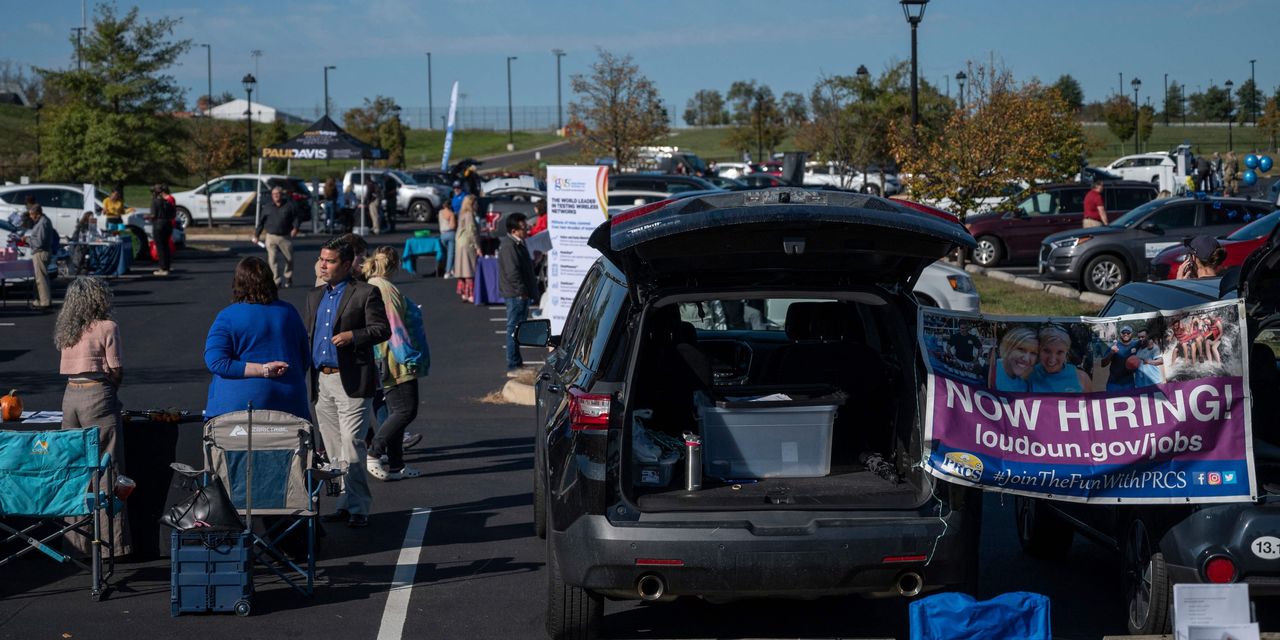
OPINION:
America is facing a looming crisis: It seems able-bodied adults just don’t want to work.
It’s not because there’s a lack of jobs. It’s estimated there are currently 11.2 million job openings, compared to 7.4 million Americans out of work. In September, 4.4 million quit the workforce altogether.
Amid a labor shortage, businesses are scrambling to keep their operations running. Many have lowered their requirements on hiring, eliminated background checks, stopped requiring a college diploma or related work experience, and hastened their application process. Others are offering increased benefits, more pay and flexible time.
Yet, despite these new incentives, about 1.4 million fewer adults ages 25 to 54 are working or looking for a job now than in February 2020, a month before the pandemic hit.
The Biden administration promised this spring that the passage of its $1.9 trillion “American Rescue Plan” would lure mothers back into the workforce, as much of the money would be allocated to school reopening.
Most schools are now completely back in session, but the share of prime-age women working or looking for a job remains depressed – 75.4% in October compared with 76.8% in February 2020.
In September, enhanced unemployment benefits ran out – meaning folks could no longer make more by sitting on their couch than by working – and yet many decided not to return.
It seems, Mr. Biden’s rental assistance, expanded child tax credit and $1,400 stimulus checks, gave many Americans the cushion they needed to live off the government dole a little longer. Perhaps, they’re waiting for Mr. Biden to pass his “Build Back Better” plan to see what more money may be coming their way before being forced to, you know, earn a living.
Stephanie Aaronson, a Brookings Institution economist who studies labor-force participation rates, told the Wall Street Journal this week she expects it could take several years for prime-age work participation to return to pre-pandemic levels.
“People really for a year and a half have totally changed their lives,” Ms. Aaronson told the Journal. “That might just mean that there’s even more persistence in people’s labor-force decisions than there is normally.”
In other words, they got used to not working.
This, of course, has dire implications for our economic recovery. Labor shortages will further deepen our supply chain crisis and limit the amount of goods delivered (and placed) on store shelves. This will prolong already-skyrocketing inflation and may force the Federal Reserve to raise interest rates faster than planned.
It also raises the possibility of relaxing immigration policy – somebody has got to work, after all, and if Americans don’t want to do it, surely the illegals will.
NBC’s Chuck Todd on “Meet the Press” on Sunday bluntly asked Mr. Biden’s top economic adviser Brian Deese whether “you gotta open the immigration door” to deal with labor shortages.
Margaret Brennan of CBS repeated the question – or advocacy, depending on how you look at it – to Treasury Secretary Janet Yellen.
“I mean, are we at a place where we need to increase immigration in order to meet this [labor shortage] challenge?” Ms. Brennan asked Ms. Yellen, also a former Federal Reserve chairwoman.
Both Mr. Deese and Ms. Yellen sidestepped the question, saying getting COVID-19 under control and the child-care provisions in the Build Back Better bill will solve the labor crisis.
Where have we heard this before? In February, when the Biden administration told us passing the American Rescue Act was essential to get people back on the job. The economy has only worsened since then.
The $1.9 trillion American Rescue Act was signed into law in March. A $1.2 trillion infrastructure bill was signed into law Monday. Now we need a $4 trillion bill, to get Americans back at work. All this spending as inflation soars to a 30-year high.
Mr. Biden is working to create a cradle-to-grave welfare state. If and when his Build Back Better plan passes, it will only encourage more Americans to stay on the sidelines enticed by “free” government goodies.
That will then give Democrats the excuse they need to pass comprehensive immigration reform — you, know, to really solve the labor shortage problem – and place hardworking Americans further behind.
Welcome to the beginning of American socialism.
• Kelly Sadler is the commentary editor at the Washington Times.








